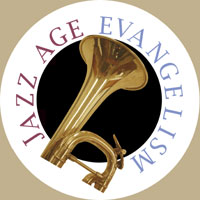

|
Read more on
|
Rader had an abiding distrust of denominational structures and a hatred of church politics. The statement of belief and faith drawn up for his Gospel Foundation in 1921 was simple in the extreme:
1. The inspiration and supreme authority of the Holy Scriptures
2. The Deity of our Lord Jesus Christ; His incarnation; atoning death; bodily resurrection and Personal return
3. The Holy Spirit and His regenerative work essential to the regeneration and the sanctification of believers
4. The Church of Christ on earth composed of the redeemed, who are commissioned to make their chief business the evangelization of the world
It was this message Rader preached at the Tabernacle and all were welcome to come and hear, including Pentecostal Christians who were not welcome in many of the other Fundamentalist churches of the day. Evangelism and growth in the Christian life, rather than systematic theology, were the emphases.
There was a definite circuit in the United States for Fundamentalist preachers and lecturers and the Fundamentalist character of the Tabernacle was also expressed in the variety of speakers welcomed to its pulpit, the best known including William Biederwolf, Evangeline Booth, F.F. Bosworth, E.M. Bounds, R.A. Jaffrey, Mark Matthews, R.E. Neighbor, Franklin J. Norris, John R. Rice, Raymond Ritchey, William Bell Riley, T.T. Shields, Oswald J. Smith, Billy Sunday, and W. Leon Tucker.
back
to main Fundamentalist & Ecumenical page
go on to main Building page